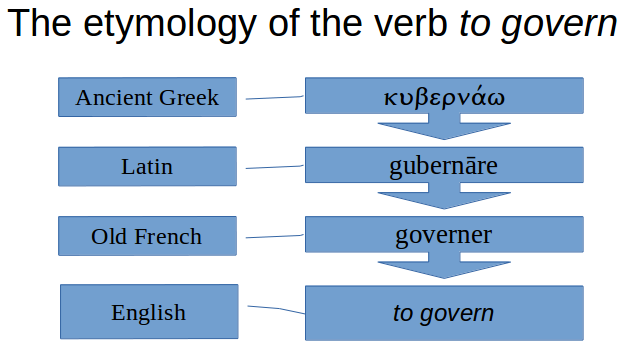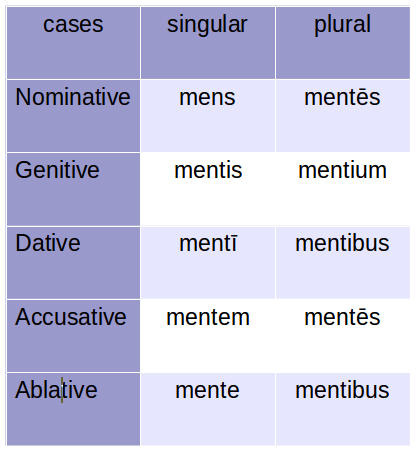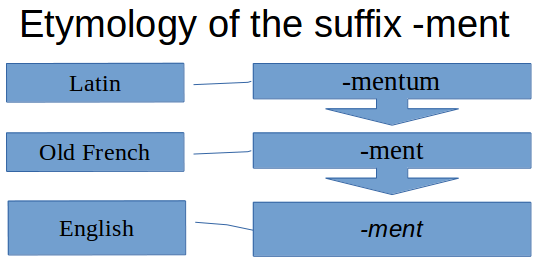Is the Dollar Vigilante wrong about the etymology of the word 'government'?
Dear reader,
First of all I need to apologize myself for the lurid headline. But I want to increase the odds that this very article will be noticed which is actually my first article on steemit.
Since I use to watch the Dollar Vigilante I noticed a couple of times that his take on the etymology is not really correct. Wouldn't it be almost too good when the word 'government' meant originally 'mind control'?
Let's see what he actually has to say about the case and then prove or disprove it. Here is a citation about the etymology of the word 'government' which you can find in a letter published by Jeff Berwick in February 4, 2014:
Government is a compound formed from the Ancient Greek κυβερνάω (kubernaō, "I control, steer, drive, guide, pilot") and the Latin -mente, ablative singular of mēns (“mind”).
Source: Dollar Vigilante's Blog
Here is a recent video in which he mentions also this etymology of the word 'government' approximately at 06:36:
The etymology of the verb to govern
The etymology of the verb to govern is quite clear compared with the etymology of -ment. To govern can be traced back to its Ancient Greek roots. The basic meaning of this Ancient Greek verb is to steer that can be found with such meaning for instance in the Platonic dialogue the Statesman (cf. Plat. Stat. 298e). Other metaphorical meanings include to guide and to govern.
[298e] or in some instances should be adopted as unwritten ancestral customs, and that henceforth forever navigation and the care of the sick should be conducted in accordance with these provisions. […]
Source: Plato. Plato in Twelve Volumes, Vol. 12 translated by Harold N. Fowler. Cambridge, MA, Harvard University Press; London, William Heinemann Ltd. 1921.
That's the Ancient Greek original quotation:
[298ε] ἐν κύρβεσί τισι καὶ στήλαις, τὰ δὲ καὶ ἄγραφα πάτρια θεμένους ἔθη, κατὰ ταῦτα ἤδη πάντα τὸν ἔπειτα χρόνον ναυτίλλεσθαι καὶ τὰς τῶν καμνόντων θεραπείας ποιεῖσθαι. […]
Thereafter it became a borrowed word of the Latin language during the Latinization. That means the Romans borrowed a lot of the Greek language and culture and they took advantage of it.
The entry in the Lewis & Short Latin dictionary looks like that:
gŭberno , āvi, ātum, 1, v. a., = κυβερνῶ
Source: Lewis & Short
That's interesting because this entry expresses that gŭberno works like the Greek κυβερνῶ.
From the Latin language evolved the Romance languages like Italian, Spanish, French, Portuguese, Romanian and other smaller ones. A myriad of words came into the English language via Old French.
That's clear and there is no mistake so far.

The second part of the noun 'government'
Jeff Berwick has stated in his quote above that mente is the ablative singular form of the substantive mens which is on the one hand correct so far. Here is a declension table for the Latin substantive mens:

But on the other hand it isn't correct that the second part of the word can be correctly derived from this form. Now we need to consider quite a bit the grammar. When we bring the function of the Latin ablative case to mind it becomes clear that it is unlikely derived from that word. Its name ablatus comes from auferre which means something like to carry away. The Latin ablative case is generally used to indicate a movement away from something, removal or separation. When we want to express the object of a verb however it would appear in the Latin accusative case. What is it what is been controlled? It's the mint for example.
However what's the reason why it sounds still plausible to same people? It‘s because there are two different etymologies which look the same due to the fact that both types of words end in -ment in the English language. But nevertheless they are distinguishable: One is used to form a noun from a Latin verb by adding the Latin suffix -mentum to it. The noun of the verb indicates an action or state which is equivalent to the English -ment.

The other is used to form a phrasal adverb of a verb by using the ablative case as for instance in vēlōcī mente (quick-mindedly, with a quick mind) that expresses a person's state of mind. This is also in a generalized form the case in the Romance languages. The regular adverb in Romance languages like Italian, Spanish or French is formed by adding the suffix -mente (Italian and Spanish) or -ment (French) to an adjective in its feminine form. These suffixes share the same etymology because they are derived from their common ancestor language which is of cause Latin. There are a lot of words which are formed like this and which came via the French language into the English language. But since the word government is a noun we need to consider the grammar rules to form a noun from a verb. Those are in the Latin language the suffix -mentum which became in French -ment which actually became also an English suffix.
Conclusion
Jeff Berwick is correct about the first part. But the second part is not correct. I hope I have shown that it is just a suffix to derive a noun from a verb like government which indicates the state in which someone rules and not to control the mind. The political and philosophical critique of this suspect institution remains of cause untouched.
Great first post, I'm not up on this dollar dude...but I have been calling it mindscaping since the early '80s...they do have all the right tools...hard for the sheeple to resist.
~may all hatred cease...let there be peace~
Yeap. A sensationalist propagandist that twists the meaning of the words in order to get tin-foiled delusional anarchists to follow him and make him rich.
He is also a fraud. search his name here on Steemit. passport fraud and the like. I have been tackling him since last year.
I'm on Dollar Virgil like a fly on shit myself. I'll follow you. Check my spews at his blogs once in awhile and see if they hit him hard enough. I want every spew to be like a kick to his nuts. thanks.
I will
i bet most of the tin-foiled delusional people who follow him and don't take his stance on things like mind control or globalist elite with a grain of salt aren't anarchists to begin with.
nop..just gamblers or criminals that found a safe heaven to excuse their lifestyle.
Also thanks for commenting!
Excellent
Thank you
Thanks a lot for commenting!
There's no doubt it means mind control and objectively that's all government is besides violence, when you snap out of it. government doesn't exist it's just a figment.
'gubernare' means 'to control' and 'mens, mentis' means 'the mind'. That's correct.
But the second part of the word doesn't come from 'mens, mentis', as I pointed out.
and i disagree on the same basis that mark passio points out in the video i posted.
Therefore we have a dissent.
http://www.wordreference.com/definition/ment
http://www.wordreference.com/definition/figment